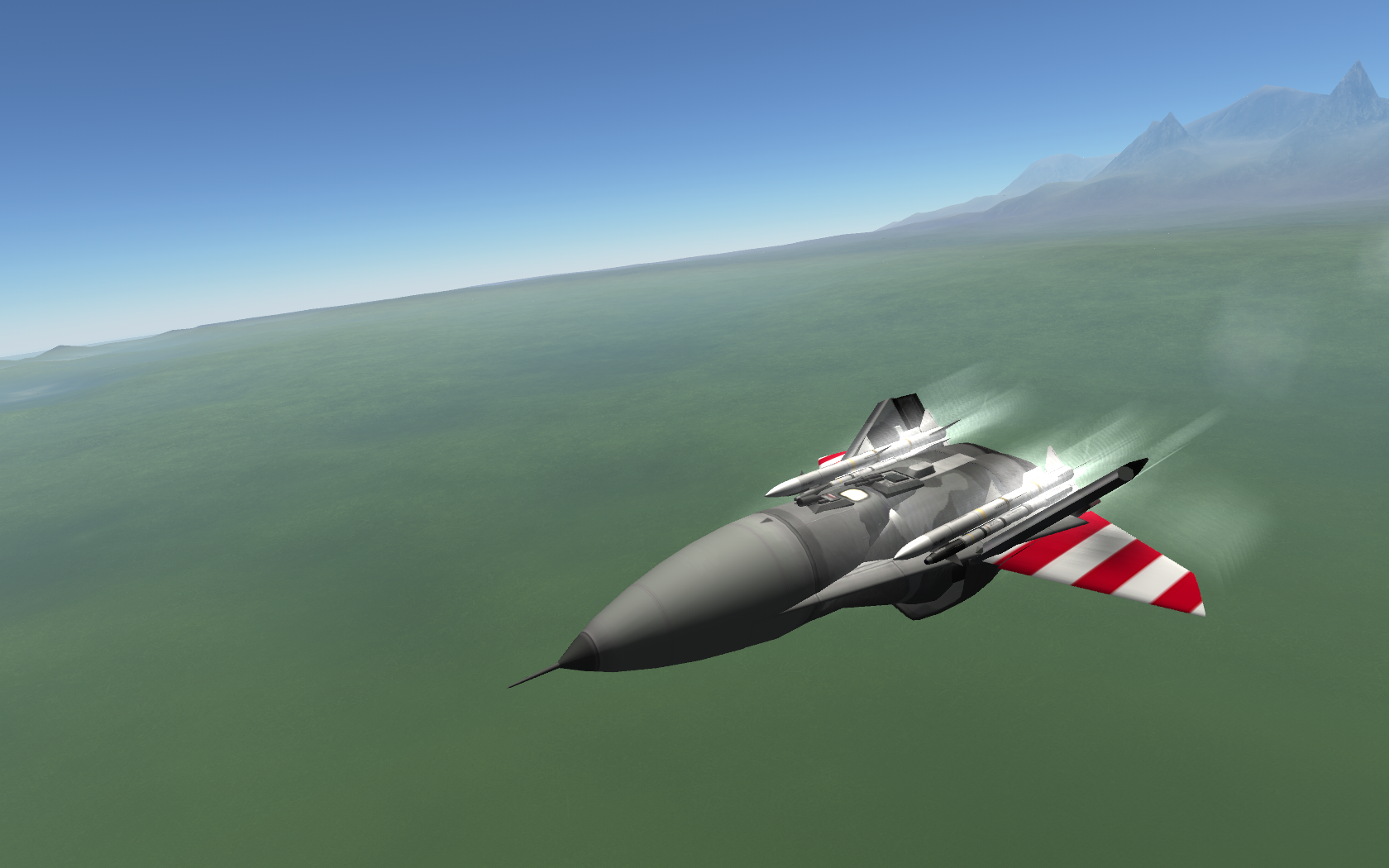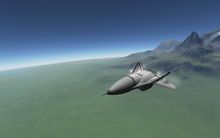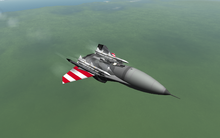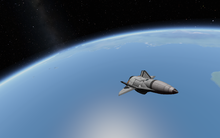F-45 Spectre
|
F-45 Spectre
|
|||||
|---|---|---|---|---|---|
 |
|||||
| Role | Lightweight Stealth Fighter | ||||
| National Origin | {{{origin}}} | ||||
| Production History | |||||
| Service History | |||||
| Used By | Mechani/Solari under Solani, allied partners | ||||
SCS F-45 Spectre
The Spectre is a compact, twin-engine supersonic stealth fighter aircraft with an emphasis on small size, high speed, and low radar cross section.
Extremely small and compact by modern fighter design standards, the diminutive size and form factor of the F-45 in conjunction with intelligent design choices bring its RCS to a sub-5 meter scale, low enough to make it nearly impossible to lock at long range with radar-guided missiles.
The twin 3D thrust-vectored engines help make up for the limited control surfaces on the airframe, while a lifting body-esque shape and all-moving wingtip taileron surfaces provide massive immediate-response flight control.
Much like the Solani standard SCS F-34A Prowler, the Spectre features advanced "Coffin" augmented reality cockpit technology, nestling the crew cabin deep in the fuselage for protection and isolation, as well as eliminating the need for a proper canopy at all.
A full ASEA radar and RWR suite plus sensor fusion system make the F-45 also one of the most advanced recon aircraft in the Solani arsenal, one ideal for wild weasel and combat reconnaissance missions.
Variants
The F-45 has 3 main variants:
The YF-45 was the early prototype model of the fighter, unarmed bar its radar system.
The standard F-45 is the variant in-service with Mechani and Solari pilots as well as allied partner forces.
The F-45 "Space Spectre" is an experimental prototype SSTO spaceplane conversion of the fighter meant to fill the role of scout shuttle for space missions.
Future
With the F-45 representing to many the pinnacle of Solani arms tech in terms of air power, not much is known about the future of combined Solari/Mechani air fighter design. However, various images of prototype aircraft from various private design bureaus have surfaced, showing various approaches to filling out gaps in the air force unit hierarchy.


